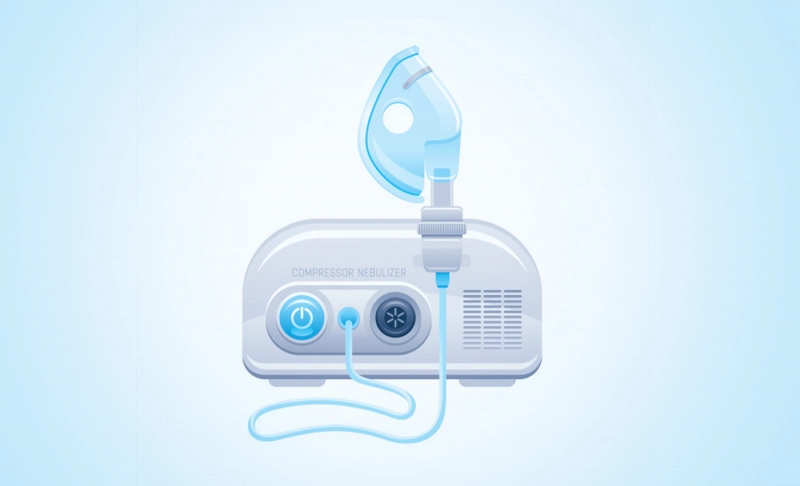By: Sandesh M
February 8 2022

Doctors have discredited the use of nebulizers as a substitute for oxygen cylinders, calling the advice "baseless."
Doctors have discredited the use of nebulizers as a substitute for oxygen cylinders, calling the advice "baseless." A video of Dr. Alok Sethi from Sarvodaya Hospital in Faridabad, India, has gone viral. In the clip, a nebulizer is used as a substitute for an oxygen cylinder. According to Dr. Sethi, the "environment has enough oxygen," and a nebulizer is sufficient in providing COVID-19 patients with the oxygen levels needed. He advises viewers not to "run behind oxygen cylinders and risk their life" but to stay at home and use a nebulizer instead. However, doctors and health experts have dismissed the claim and advised people not to follow the guidance. Sarvodaya Hospital discredited the video saying this technique "has not been backed by any evidence or scientific study," and "does not reflect any medical advice." They advised people not to follow any technique without consulting a doctor and warned that "it could lead to worsening of the disease [COVID-19]" Surgeon and Group Chairman at Medanta Hospital, Dr. Arvinder Singh Soin, also took to Twitter to debunk the claim. Later Dr. Sethi shared another video clarifying that nebulizers cannot be a substitute for oxygen tanks. He told people to ignore the video. A nebulizer is a small machine that turns liquid medicine into a mist that can be inhaled directly into the lungs of patients suffering from lung diseases. It has not been advised that a nebulizer can be used as a substitute for oxygen cylinders to aid patients in need of medical oxygen to breathe. The COVID-19 pandemic has given rise to a lot of potentially dangerous misinformation. For reliable advice on COVID-19 including symptoms, prevention, and available treatment, please refer to the World Health Organisation or your national healthcare authority. The COVID-19 pandemic has given rise to a lot of potentially dangerous misinformation. For reliable advice on COVID-19, including symptoms, prevention, and available treatment, please refer to the World Health Organization or your national healthcare authority.